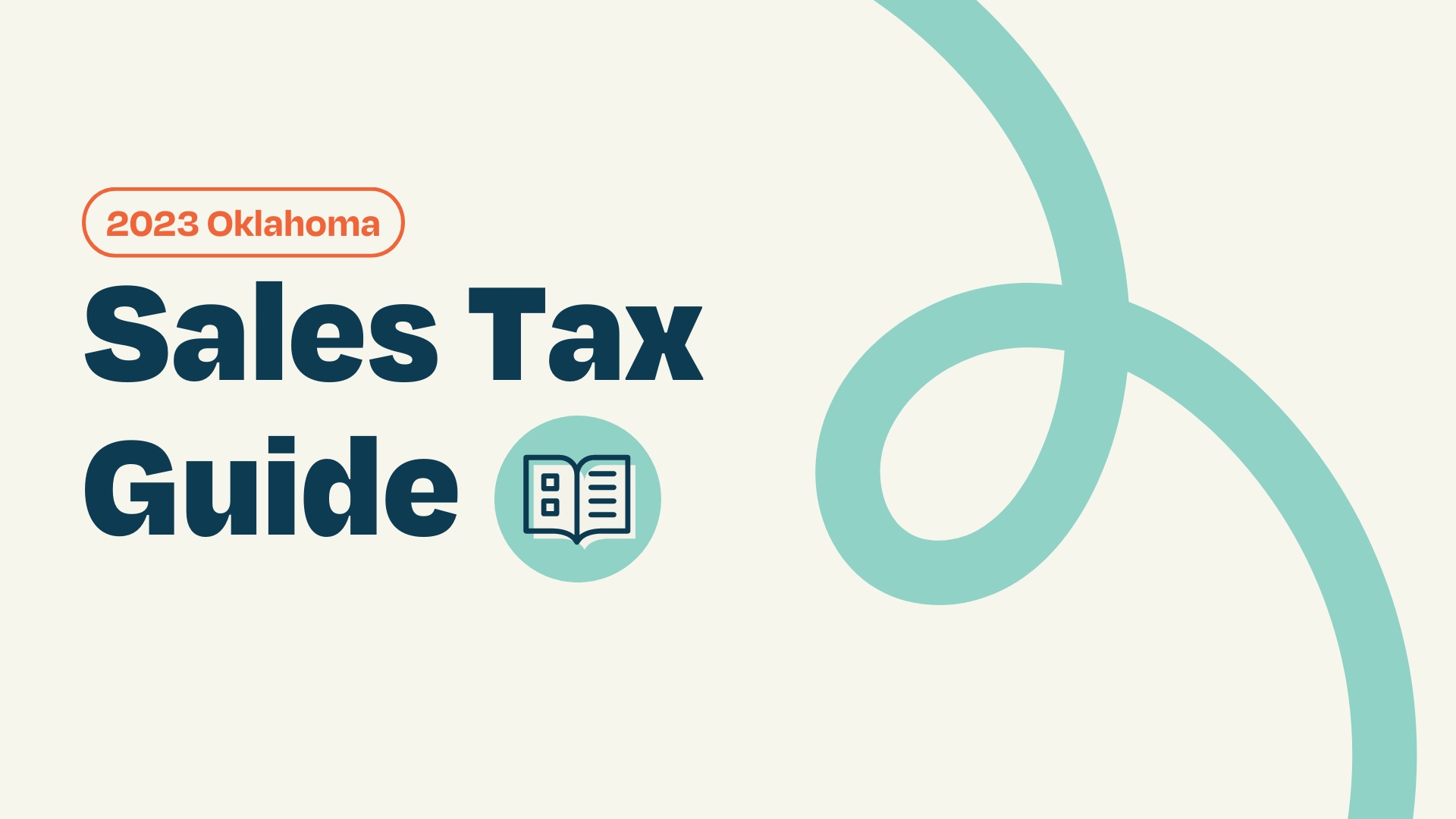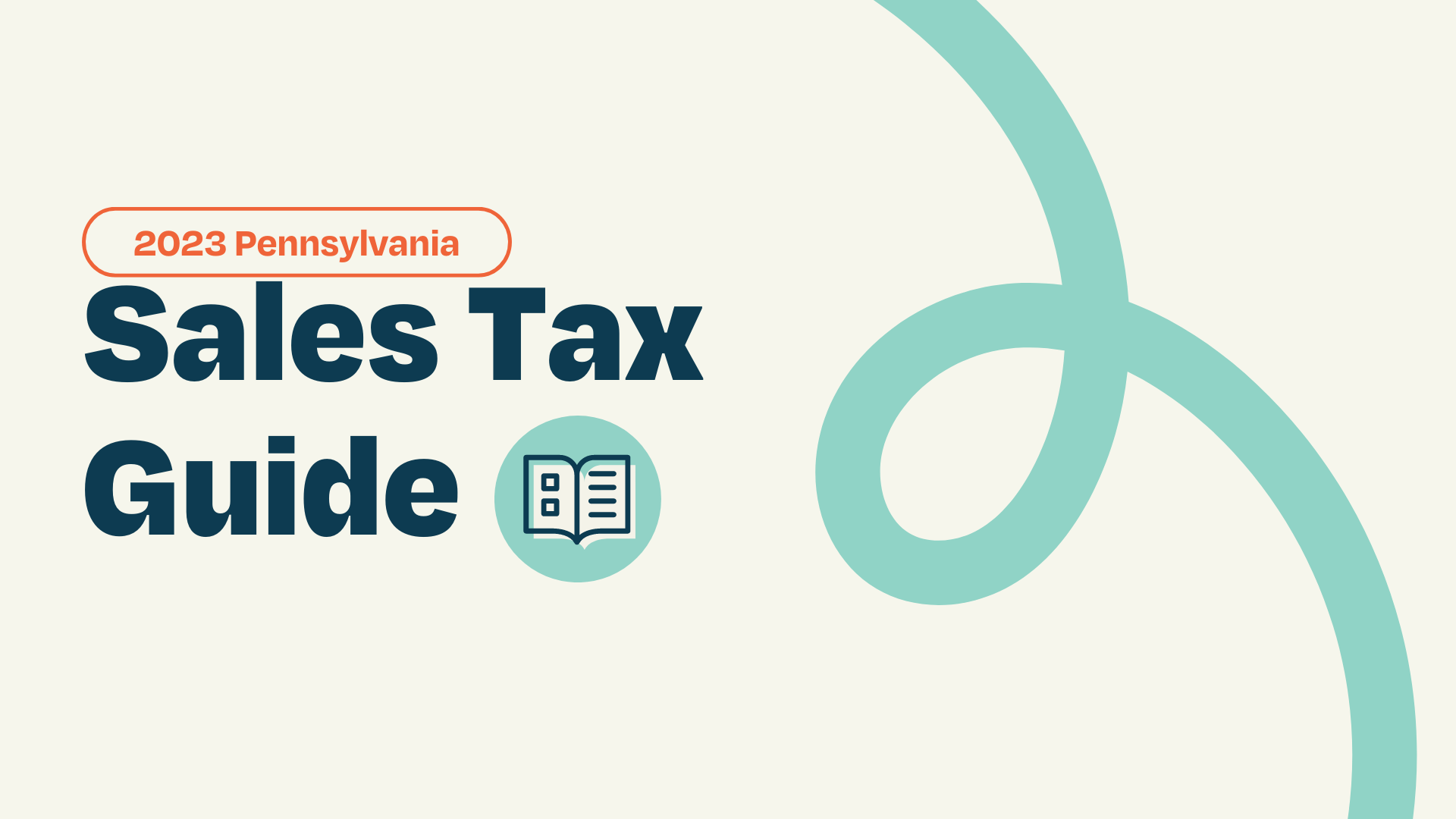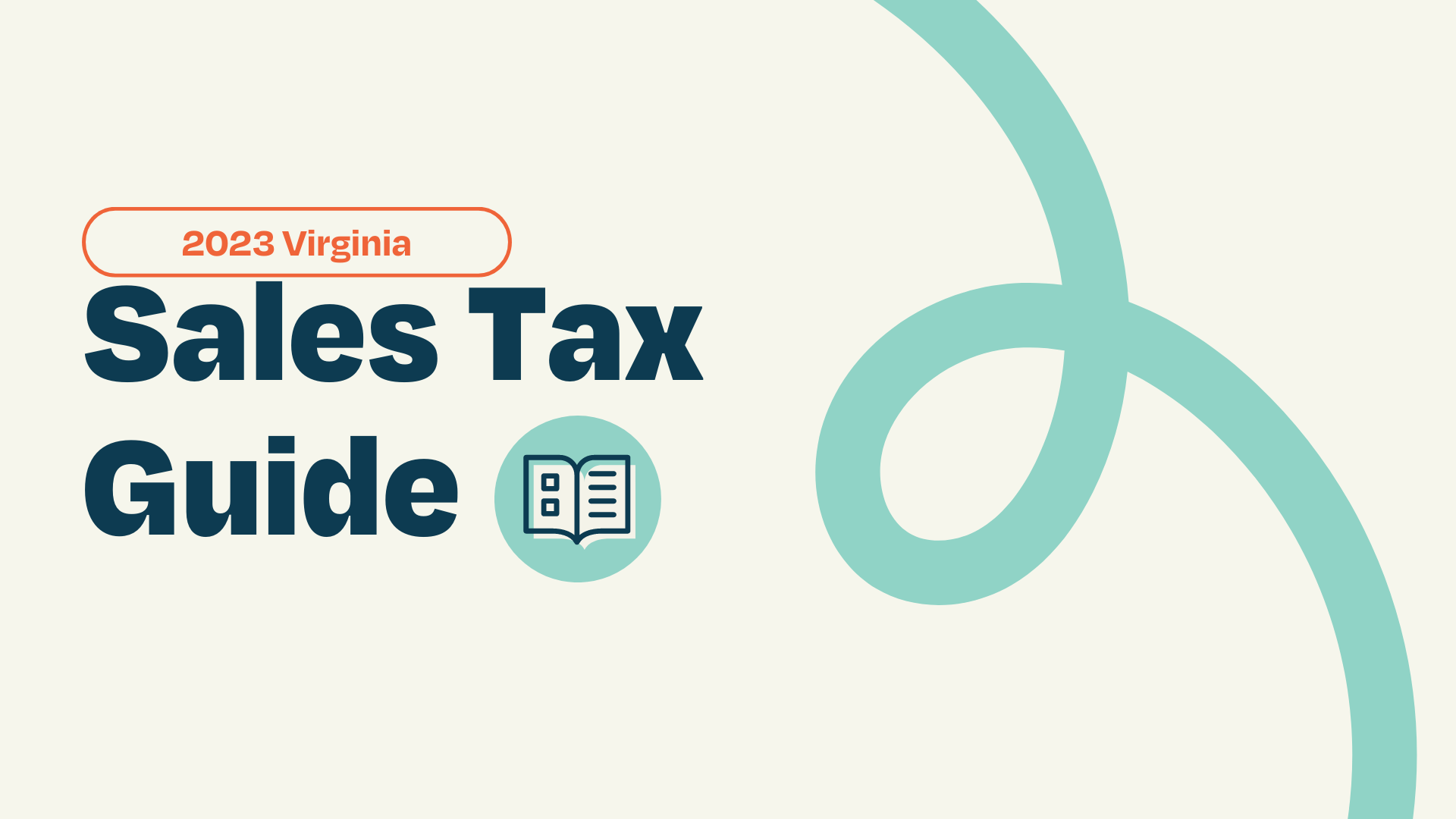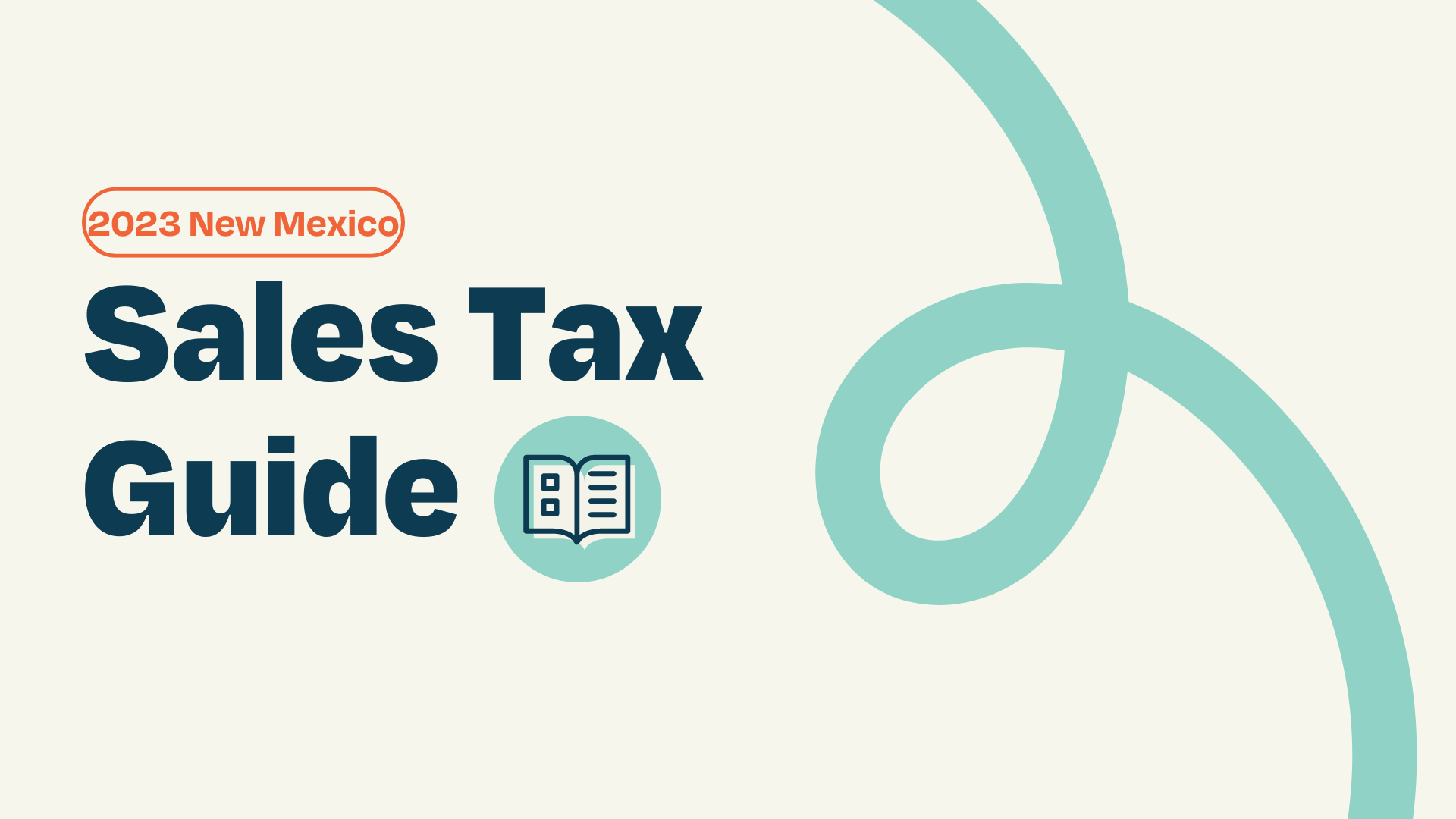Pennsylvania 2023 Sales Tax Guide
Pennsylvania Sales Tax in a Word Hey there, fellow Pennsylvania business owners! We know that dealing with sales taxes can feel like...

Do you ever find yourself feeling a little overwhelmed when it comes to filing your Oklahoma sales tax returns? Fear not, fellow entrepreneur! In this comprehensive guide, we'll walk you through the ins and outs of sales tax filing in the Sooner State.
Think of us as your friendly neighborhood accounting experts, eager to help you navigate the world of sales tax with ease and confidence. So, grab a cup of your favorite beverage, and let's dive into the world of Oklahoma sales tax returns, making the process as enjoyable and painless as possible. Together, we'll ensure your business continues to thrive and stays in good standing with the Oklahoma Tax Commission.
|
Table of Contents |
Navigating the complexities of sales tax can sometimes feel like a maze, but knowing who to reach out to for assistance can make all the difference. In Oklahoma, sales tax is managed by the Oklahoma Tax Commission (OTC). Let's delve into the important contact information you'll need to seek guidance or resolve any sales tax-related issues in Oklahoma.
The Oklahoma Tax Commission is the state agency responsible for administering, collecting, and enforcing sales tax laws and regulations. The OTC is your go-to resource for any questions, concerns, or issues related to sales tax in Oklahoma.
Here's the essential contact information for the Oklahoma Tax Commission
|
Mailing Address |
Oklahoma Tax Commission Post Office Box 26800 Oklahoma City, OK 73126-0800 |
|
Street Address |
Oklahoma Tax Commission 2501 North Lincoln Boulevard Oklahoma City, OK 73194 |
|
Phone Numbers |
(405) 521-3160 |
|
|
You can submit your inquiries related to sales tax using the OTC's online contact form. |
|
Website |
When reaching out to the Oklahoma Tax Commission, be prepared with relevant information and documentation, such as your sales tax permit number, business name, and contact information. This will help ensure that the OTC can provide you with accurate and timely assistance for your sales tax needs
One of the most critical aspects of understanding sales tax obligations for your business is determining whether you have nexus in a particular state. Nexus is a connection between your business and a state that creates a tax obligation. In Oklahoma, there are several ways in which nexus can be established, each with its own set of criteria.
In Oklahoma, nexus can be created through physical presence, economic activity, affiliate relationships, click-through arrangements, and marketplace facilitator laws. Let's dive into each type of nexus to gain a better understanding of what creates a sales tax obligation in the state.
Physical nexus is triggered when your business has a tangible presence in the state. This can include:
Having a physical office, warehouse, or retail location
Employing workers or sales representatives within the state
Storing inventory or goods in a warehouse or distribution center in Oklahoma
Attending trade shows or conducting other business activities within the state
If your business has a physical presence in Oklahoma, you are required to collect and remit sales tax on sales made to customers within the state.
Economic nexus is established when your business reaches a certain level of sales or transactions within Oklahoma. As of September 1, 2018, Oklahoma's economic nexus threshold is:
$100,000 in gross revenue from sales of tangible personal property, services, or digital products delivered into Oklahoma, or
200 separate transactions of tangible personal property, services, or digital products delivered into Oklahoma
If your business meets or exceeds these thresholds in the current or previous calendar year, you are required to register, collect, and remit Oklahoma sales tax.
Affiliate nexus is established when your business has a relationship with another entity in Oklahoma that helps promote or facilitate sales in the state. This can include:
Having a parent company, subsidiary, or sister company located in Oklahoma
Using in-state affiliates to promote or refer customers to your business
If your business has affiliate nexus in Oklahoma, you are required to collect and remit sales tax on sales made to customers within the state.
Click-through nexus is created when your business works with websites or other online platforms based in Oklahoma to drive traffic and sales to your website. If a customer in Oklahoma clicks through a referral link and makes a purchase within a certain time frame, and your business's gross revenue from these sales exceeds $10,000 in the previous 12 months, click-through nexus is established.
If your business has click-through nexus in Oklahoma, you are required to collect and remit sales tax on sales made to customers within the state.
Marketplace nexus is established when your business sells products or services through a marketplace facilitator (such as Amazon, eBay, or Etsy) that has nexus in Oklahoma. As of April 10, 2019, marketplace facilitators are required to collect and remit sales tax on behalf of their third-party sellers for sales made to customers within the state.
If your business has marketplace nexus in Oklahoma, the marketplace facilitator is typically responsible for collecting and remitting sales tax on your behalf.
Yes, Oklahoma has use tax laws that apply to purchases made from out-of-state sellers for use, storage, or consumption within the state. Use tax is complementary to sales tax and helps level the playing field between in-state and out-of-state sellers. Oklahoma businesses and individuals are required to report and remit use tax on taxable purchases when sales tax has not been collected by the seller.
Understanding the various ways in which nexus can be created in Oklahoma is crucial for maintaining sales tax compliance and ensuring your business stays on the right side of the law. Be sure to monitor your business activities in the state and register for a sales tax permit if you meet any of the nexus criteria.
Once you've determined that your business has nexus in Oklahoma, the next step is to register for a sales tax permit. This permit will authorize your business to collect, report, and remit sales tax on taxable sales made in the state. In this section, we'll guide you through the registration process, the associated costs, and additional agencies you may need to register with in Oklahoma.
Registering for a sales tax permit in Oklahoma is a straightforward process that can be completed online or by submitting a paper application. Here's a step-by-step guide to help you through the process:
Gather the required information: Before starting the registration process, make sure you have all the necessary information handy, including your business name, address, contact information, Federal Employer Identification Number (FEIN) or Social Security Number (SSN), North American Industry Classification System (NAICS) code, and estimated monthly sales tax.
Choose a registration method: Oklahoma offers two methods for registering your sales tax permit:
Online: The Oklahoma Tax Commission provides an online registration portal called OkTAP. To register online, create an account, log in, and follow the prompts to complete the registration process.
Paper: If you prefer to register using a paper application, download Form BT-129, the Oklahoma Business Registration Packet. Fill out the form and mail it to the Oklahoma Tax Commission at the address provided on the form.
Complete the registration process: Whether you're registering online or via mail, provide all the requested information accurately and completely. Double-check your entries to ensure there are no errors before submitting the application.
Wait for your permit: Once your application is submitted, the Oklahoma Tax Commission will review it. If your application is approved, you'll receive your sales tax permit in the mail. This process can take a few weeks, so be patient.
Good news! Registering for an Oklahoma sales tax permit is free. There are no application or registration fees associated with obtaining a sales tax permit in Oklahoma.
Yes, you will need a Federal Employer Identification Number (FEIN) if your business is a corporation, partnership, or LLC. If you're a sole proprietor, you can use your Social Security Number (SSN) instead of an FEIN. To obtain an FEIN, you can apply online through the IRS website.
Depending on the nature of your business, you may need to register with additional agencies in Oklahoma. Some common agencies you may need to register with include:
The Oklahoma Secretary of State for business entity registration and annual reports
The Oklahoma Employment Security Commission for unemployment insurance and workforce services
The Oklahoma Workers' Compensation Commission for workers' compensation coverage
It's essential to research and register with all applicable agencies in Oklahoma to maintain compliance and ensure your business operates smoothly within the state.
Now that your business is registered and has an Oklahoma sales tax permit, it's time to focus on collecting sales tax from your customers. In this section, we'll explore Oklahoma's sales tax rules, including origin vs. destination tax rules, taxable sales, exemptions, and handling exempt customers.
Oklahoma is a destination-based sales tax state, which means that sales tax is based on the location of the buyer, not the seller. When selling to customers in Oklahoma, you'll need to charge the appropriate sales tax rate for the destination where the product will be used, consumed, or stored.
In Oklahoma, sales tax applies to the sale of tangible personal property, certain services, and digital products. Some examples of taxable sales include:
Sales of physical goods, such as clothing, furniture, and electronics
Certain services, like repair and maintenance, landscaping, and telecommunications
Digital products, like e-books, digital music, and software
It's essential to understand which of your products or services are subject to sales tax to ensure you're collecting the correct amount from your customers.
SaaS is not taxed in Oklahoma. According to 68 O.S. Sec. 1354(A), the following services are subject to sales tax in Oklahoma:
Retail sales of tangible personal property
Services performed in this state for a consideration
Services performed outside this state for a consideration if the service is delivered into this state
SaaS is not considered tangible personal property, and it is not considered a service performed in this state. Therefore, it is not subject to sales tax in Oklahoma.
The Oklahoma Tax Commission also defines "data processing services" as services that "involve the manipulation of data by a computer." SaaS is a type of data processing service, so it is also exempt from sales tax under SECTION 710:65-19-156.
Therefore, you can be confident that SaaS is not taxed in Oklahoma.
There are several categories of products and services that are exempt from sales tax in Oklahoma, including:
Prescription medications and certain over-the-counter drugs
Medical equipment and supplies used by healthcare providers
Sales of livestock, poultry, and feed for livestock and poultry
Sales of agricultural machinery and equipment
Sales of newspapers, periodicals, and magazines
Some organizations and individuals may qualify for sales tax exemptions in Oklahoma, such as:
Government agencies and employees purchasing for official use
Nonprofit organizations, including religious, educational, and charitable institutions
Qualified agricultural producers
Manufacturers purchasing equipment for use in the production process
If you have a customer who is eligible for an Oklahoma sales tax exemption, you should obtain a completed Oklahoma Sales Tax Exemption Certificate. This certificate is the buyer's declaration that they are exempt from sales tax and provides you with documentation to support the tax-exempt sale.
Keep a copy of the exemption certificate on file and ensure it is updated as needed. You are responsible for maintaining accurate records of all tax-exempt sales.
If you lose an Oklahoma Sales Tax Exemption Certificate, you should request a new one from your customer. It's crucial to have a valid exemption certificate on file for every tax-exempt sale you make. Failure to maintain proper documentation can result in fines, penalties, or assessments in the event of an audit.
Collecting sales tax in Oklahoma can be complex, but understanding the rules and regulations is crucial for maintaining compliance and avoiding potential issues. Stay on top of your sales tax obligations, and don't hesitate to consult a tax professional for guidance if you have questions or concerns.
After you've registered for a sales tax permit, collected sales tax from your customers, and kept meticulous records, it's time to file and pay your sales taxes in Oklahoma. In this section, we'll discuss when to file and pay, how to file your sales tax return, potential penalties, and any incentives Oklahoma may offer.
Oklahoma requires businesses to file and pay their sales taxes on a monthly, quarterly, or annual basis, depending on the amount of sales tax collected.
The filing frequency and dues dates are as follows:
|
Monthly Filing |
If your monthly sales tax liability is more than $500, you must file and pay your sales tax monthly. |
Returns and payments are due by the 20th of the following month. |
|
Quarterly Filing |
If your monthly sales tax liability is less than $500 but at least $50, you must file and pay your sales tax quarterly. |
Returns and payments are due by the 20th of the month following the end of the quarter. |
|
Annual Filing |
If your monthly sales tax liability is less than $50, you must file and pay your sales tax annually. |
Returns and payments are due by January 20th of the following year.
|
If an Oklahoma sales tax filing date falls on a weekend or holiday, the due date is automatically extended to the next business day. Be sure to check the Oklahoma Tax Commission's calendar for any specific due date adjustments.
Filing a sales tax return in Oklahoma can be done either online or by mail. Here's a detailed guide to help you file your Oklahoma sales tax return:
Gather your records: Before you begin filing your sales tax return, gather your sales tax records, including the total sales for the filing period, taxable sales, and total sales tax collected.
Choose a filing method: Oklahoma offers two methods for filing your sales tax return:
Online: The Oklahoma Tax Commission provides an online filing portal called OkTAP. To file online, log in to your OkTAP account and select "File a Return" for the appropriate filing period. Follow the prompts to complete the process.
Paper: If you prefer to file using a paper return, download Form STS20002, the Oklahoma Sales Tax Return. Fill out the form with the required information and mail it to the Oklahoma Tax Commission at the address provided on the form.
Complete the sales tax return: Provide all the requested information accurately, including your sales tax permit number, business name, filing period, total sales, taxable sales, and total sales tax collected. Double-check your entries to ensure there are no errors before submitting the return.
Submit your payment: If you owe sales tax, submit your payment along with your return. You can pay your sales tax online through OkTAP, by mail with a check, or by using Oklahoma's Electronic Funds Transfer (EFT) system.
Keep records: Retain copies of your filed sales tax returns and supporting documents for at least three years. These records may be required in the event of an audit.
Filing your Oklahoma sales tax return might seem complicated, but with the right preparation and organization, it can be a smooth process. Make sure to file and pay on time to avoid any penalties or interest charges.
Failure to file and pay your Oklahoma sales tax on time can result in penalties and interest. Some common penalties include:
Late filing penalty: A penalty of 10% of the tax due or $20, whichever is greater, will be assessed for filing your sales tax return late.
Late payment penalty: A penalty of 15% of the unpaid tax will be assessed for late payments. This penalty is in addition to the late filing penalty.
Interest: Interest is charged on the unpaid tax at the rate of 1.25% per month or fraction of a month.
To avoid penalties and interest, make sure to file and pay your sales tax on time and in full.
Oklahoma offers several sales tax incentives and exemptions to encourage economic development and job creation. Some examples include:
Manufacturing Exemption: Manufacturers in Oklahoma are eligible for a sales tax exemption on purchases of machinery and equipment used in the manufacturing process.
New and Expanding Industry Exemption: Businesses that invest in new or expanded facilities in Oklahoma may qualify for a five-year sales tax exemption on purchases of certain property used in the facility.
Enterprise Zone Exemption: Businesses located in designated enterprise zones may be eligible for sales tax exemptions on purchases related to business expansion, including machinery, equipment, and construction materials.
To take advantage of these incentives, you'll need to meet specific requirements and apply through the Oklahoma Tax Commission or the Oklahoma Department of Commerce. Consult with a tax professional or the relevant agencies to determine if your business qualifies for any sales tax incentives.
Filing and paying sales taxes in Oklahoma is a critical responsibility for businesses operating in the state. By staying organized, understanding the rules, and filing on time, you can help ensure your business remains compliant and avoids costly penalties. Remember, if you ever have questions or concerns about your sales tax obligations, don't hesitate to consult a tax professional for guidance.
Filing sales tax returns is an essential part of doing business in Oklahoma. To help you stay on top of your sales tax obligations and avoid common pitfalls, here are five tips for filing Oklahoma sales tax returns:
Keep accurate records: Maintaining comprehensive and accurate records of your sales transactions is crucial for calculating the sales tax you owe. This includes tracking total sales, taxable sales, sales tax collected, and any tax-exempt sales. Implement a reliable bookkeeping system to ensure your records are up-to-date and organized for easy access when it's time to file your sales tax return.
Understand filing frequencies: Oklahoma requires businesses to file sales tax returns on a monthly, quarterly, or annual basis, depending on the amount of sales tax collected. Be aware of your filing frequency and corresponding due dates to avoid missing deadlines and incurring penalties. Remember to update your filing frequency with the Oklahoma Tax Commission if your sales tax liability changes.
File even if no sales tax is due: If you don't have any sales tax to report during a filing period, you are still required to file a "zero" return. Failing to file a return, even if no tax is due, can result in penalties. Make sure to file your sales tax return on time, regardless of whether you owe any tax for the period.
Double-check your return: Errors on your sales tax return can lead to overpayments, underpayments, or even penalties. Before submitting your return, double-check all the information, including your sales tax permit number, business name, filing period, total sales, taxable sales, and sales tax collected. If you discover an error after you've submitted your return, promptly file an amended return to correct the mistake.
Stay informed about changes in sales tax rules and rates: Sales tax rules and rates can change over time, so it's essential to stay informed about any updates that may affect your business. Regularly check the Oklahoma Tax Commission's website for news and updates, and consider seeking professional guidance to ensure you remain compliant with all sales tax requirements.
By following these tips, you can avoid common mistakes when filing your Oklahoma sales tax returns, ensuring a smooth filing process and minimizing the risk of penalties and interest. Remember, staying organized, understanding the rules, and filing on time are key to maintaining compliance and keeping your business in good standing with the Oklahoma Tax Commission.
As we wrap up our journey through the world of Oklahoma sales tax returns, it's essential to remember that staying organized, informed, and proactive is the key to managing your sales tax obligations with ease. By following the guidelines and tips outlined in this blog, you'll be well-equipped to tackle your Oklahoma sales tax filings with confidence and precision.
Remember that you're not alone in this process. As a small business owner, you have a network of professionals, peers, and resources at your disposal. Don't hesitate to seek help when needed, whether it's consulting a tax professional or reaching out to the Oklahoma Tax Commission for clarification on specific rules and regulations.
By maintaining a steadfast commitment to your business's success, and being diligent in your sales tax responsibilities, you can focus on growing your business and achieving your goals in the Sooner State. Happy filing!
|
Ready to work with a Oklahoma sales tax expert? We've love to work with you! |
|
Alaska Sales Tax Guide (N/A) |
||||
|
Montana Sales Tax Guide (NA) |
||||
|
Oregon Sales Tax Guide (N/A) |
||||
|
Delaware Sales Tax Guide (N/A) |
||||
|
New Hampshire Sales Tax Guide (NA) |
||||
And don't forget to check out our blog about Economic Nexus, which serves as an invaluable resource for businesses who have sales that are subject to sales tax.
This blog is for informational purposes only and the information is accurate as of 2023-06-19. If you want legal advice on sales tax law for your business, please contact a State and Local Tax (SALT) professional. Keep in mind that sales tax regulations and laws are subject to change at any time. While we strive to keep our blog current, this blog possibly may be out of date by the time you review it.

Pennsylvania Sales Tax in a Word Hey there, fellow Pennsylvania business owners! We know that dealing with sales taxes can feel like...

Virginia Sales Tax in a Word Welcome to the wonderful world of Virginia sales tax! As a small business owner, understanding this complex...

New Mexico Sales Tax in a Word Navigating the world of sales tax can be a challenging journey, especially for busy small business owners. But...